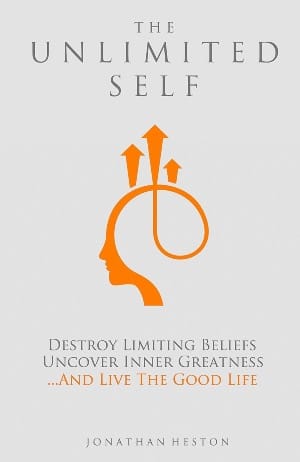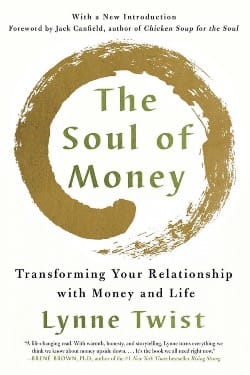Limiting Beliefs

Graham Weaver, CEO of Alpine Investors, came to speak to my class at Stanford GSB for our class, “Managing Growing Enterprises”. Typically, we are assigned a case to read and discuss it in class. This class was different, he dedicated the entire class to a new topic: LIMITING BELIEFS.

The topic was controversial, but I loved it. The mental aspects of being a leader and entrepreneur are important, but also hard to talk about. In Higher Ed, when everyone is trying to put their best foot forward, it’s hard to talk about what you are trying to improve because the conversation typically starts with where you feel like you are lacking.
Importance of the Mental Game
Over my career, I could attribute 80% of my growth to the mental game. The idea of limiting beliefs and how they can affect performance is super important. It can be huge in the topic of sports psychology, but not often articulated well in the business setting let alone to young leaders.
At GSB, young students are tasked with changing the world early in their careers. This topic deserves more attention because it would help in framing discussions to help everyone grow. It's probably why Professor Graham Weaver is so popular. He really ascribes to old school self-help/success principles that can be socially unaccepted in an academic or corporate setting. The subject doesn't have the same intellectual stature, but it works and people believe in it even if they don't talk about it openly.
How Do Beliefs Influence Us?
I wrote about a framework for human behavior and how Narratives/Beliefs drive Emotions which Drive Action:

I adapted this from a wide range of fields, but I would attribute it mostly to the work of the psychologist, Albert Ellis, the founder of Rational Emotive Behavioral Therapy.
For example, if you heard a story (narrative) of a friend who found a new restaurant that had the best sushi in town, you might feel intrigued (emotion) which would compel you to go try it out (action). You might also believe (belief) that expensive food is better so when you realize the food is affordable, you might feel less interested (emotion), compelling you not to go at all (action).
This framework is very flexible for understanding human behavior especially as it becomes more irrational and harder to explain.
Finally, Limiting Beliefs
REBT goes into depth on how irrational beliefs can drive emotions that drive undesirable behavior. In the example above, if you believe that all good food has to be expensive, you might never discover the great food truck with a $5 sub that’s to dive for or you might have an addiction to increasingly expensive.
A great book on this subject of limiting beliefs and self-improvement is the "Unlimited Self" by Jonathan Heston. The basic idea is that self-improvement and growth is actually not about adding, but instead freeing yourself from the shackles of your own limiting beliefs. When I'm in a rut where I'm trying very hard at something, but not getting the results, I find myself turning to this book often.

The key to experiencing life without limits is upgrading you. This “game” of upgrading you is what I call the Inner Arena. When you enter your Inner Arena, you become an Edge Walker. You begin intentionally facing and fighting the deep fears and beliefs that have kept you locked up for too long, so you can walk to your Edge and experience the thrill of living life free of limits and true to yourself.
Focusing on the Inner Arena helps you avoid the all-too-common success trap, where you have a good career, yet are unfulfilled. Or you’re a great parent, but don’t have abundant finances or health. This trap results from embracing strategy and tactics in specific areas, while ignoring your Inner Arena, the game going on deep under the surface. Sustained, this approach leads to burnout and a deep sense of not being fulfilled. Sure, rocking it in one area might feel great for a while, but look at the writing on the wall…it will never take you where you long to be.
Limiting Beliefs About Money
One of the biggest deterrents I've seen for entrepreneurs is one of the most difficult to talk about: limiting beliefs about money. Money is a difficult subject to talk about and one needs only to go to a college campus to see the number of young people that have a distrust of wealthy people with a bias of righteousness towards those that lack. The opposite doesn't hold true, but such axiomatic characterizations can be toxic for performance.
I would highly recommend a deeper dive into a book called "The Soul of Money" by Lynne Twist:

“Money itself isn’t the problem. Money itself isn’t bad or good. Money itself doesn’t have power or not have power. It is our interpretation of money, our interaction with it, where the real mischief is and where we find the real opportunity for self-discovery and personal transformation.”
Limiting Beliefs About Power
Another big area is power. In fact, at Stanford GSB, one of the premier courses is "Paths to Power" by Dr. Jeff Pfeffer.

Power, like money is a difficult subject to talk about, but if you want to change the world, you can't do anything without power.
Concluding Thoughts
As we venture into the complex world of business and leadership, let’s not forget the importance of addressing our inner game. It’s not merely about achieving outward success but about finding fulfillment and authenticity in our journey. In some future posts, I'd like to go deeper into the mental game of being an entrepreneur that I believe translate to any area of life:
- Law of Attraction
- Positive Psychology
- Growth Mindset
- Resilience

